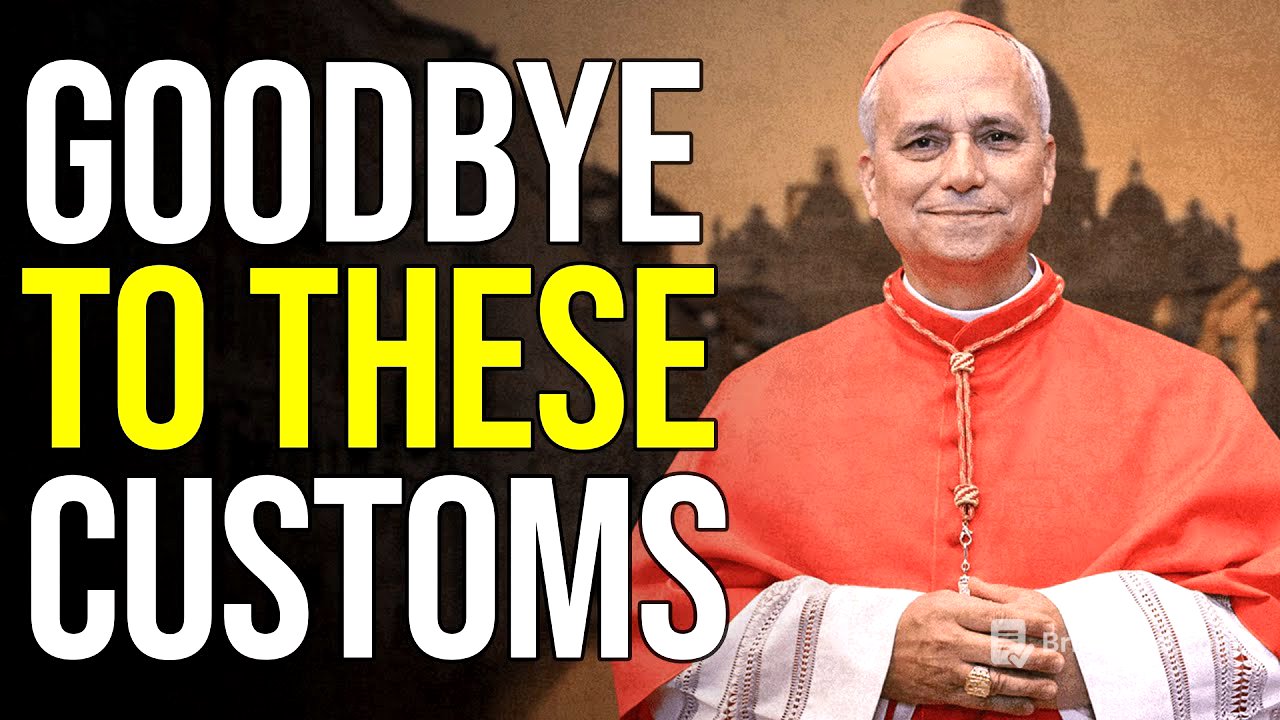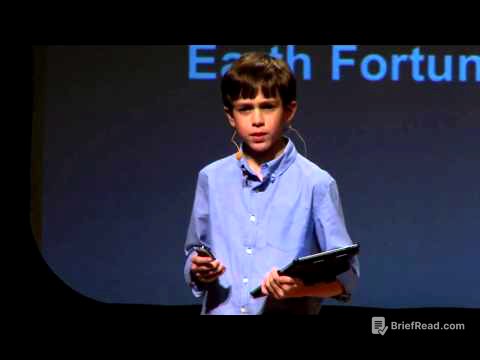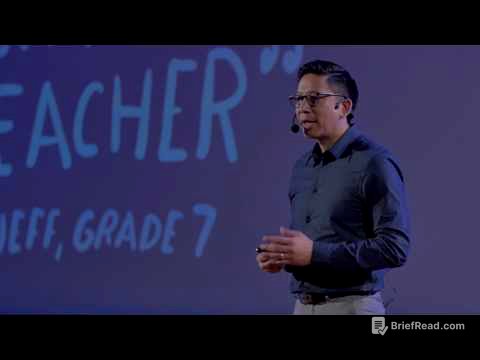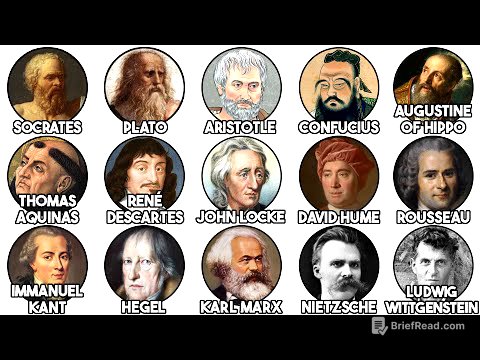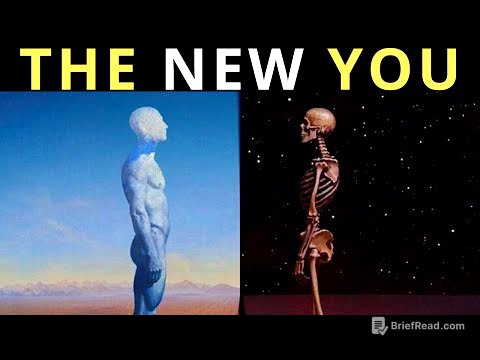TLDR;
Pope Leo XIV outlines seven reforms aimed at revitalizing the Church, emphasizing love, accessibility, and unity. These reforms include simplifying Vatican protocols, promoting inclusivity in language and liturgy, decentralizing ecclesiastical power, and addressing the Church's wounds through prayer and reconciliation. The Pope shares personal anecdotes and references to scripture and Vatican II to support these changes, urging the faithful to embrace these reforms and create a more compassionate and welcoming Church.
- Simplifying Vatican protocols and promoting closeness.
- Encouraging the use of inclusive language in liturgy.
- Decentralizing ecclesiastical power to empower local dioceses.
- Instituting a universal day of prayer for healing the wounds of the Church.
Sermon Intro [0:49]
Pope Leo XIV introduces seven reformed traditions intended to create a more vibrant and relevant Church. He emphasizes that the Church is a living entity guided by the Holy Spirit, not a static institution. The reforms aim to purify tradition, making faith more accessible and transformative. He calls for openness to renewal, urging the Church to walk with the humble, embrace the wounded, and proclaim mercy, guided by the Holy Spirit and the example of Mary.
Protocol of External Reverence [2:15]
Pope Leo XIV reformed the rigid protocols of Vatican ceremonies to foster fraternal love and closeness. He shares an anecdote of embracing his brother Louie, breaking with formal distance. He asserts that true reverence lies in selfless love for one's neighbor, not in external formalities. Drawing from his missionary experience in Peru, he emphasizes the importance of being at the service of humanity, as taught by the Second Vatican Council's Gaudium et Spes. He encourages bishops and priests to break down protocol barriers, using simple gestures like hugs and smiles as sacraments of charity, to make the Church a welcoming family.
Exclusive Use of the PayPal Skull Cap [5:50]
Pope Leo XIV addresses his reform regarding the exclusive use of the skull cap, explaining that he exchanged his with a cap bearing the National Italian American Foundation logo to make the Church more accessible. He clarifies that this gesture, like those of Saints John Paul II and Francis, is meant to bring people closer to the Church, not to show irreverence. He shares a story from his time serving in a Chicago community kitchen, where a homeless man appreciated being seen and acknowledged. The Pope encourages bishops to share liturgical objects with the faithful, emphasizing that symbols should unite rather than divide, making the Church a welcoming home for all.
The Mass in the Vernacular Language [8:52]
Pope Leo XIV discusses his decision to celebrate his inaugural mass in Latin, while also granting dioceses greater autonomy to use local languages. He explains that Latin represents the universality of the faith, while vernacular languages allow faith to speak to the heart. Drawing from his experience celebrating mass in Quechua in Peru, he highlights the importance of people understanding the liturgy in their own language, as encouraged by the Second Vatican Council's Sacrosanctum Concilium. He seeks a balance between Latin for solemn occasions and local languages for community engagement, urging priests to integrate local cultures into liturgies while maintaining fidelity to the faith.
The Wearing of Ornate Clothing [11:28]
Pope Leo XIV explains his reform of reducing the use of luxurious papal vestments in favor of simpler robes, reflecting humility. He recalls his vow to live simply as a bishop, inspired by St. Augustine's teaching that true Christianity lies in the heart, not in outward appearance. While not renouncing liturgical vestments for solemn occasions, he aims for his everyday attire to convey humility. He shares an experience from a poor community in Peru, where his simple clothes fostered trust. He calls on bishops to adopt this simplicity, so the faithful may see Christ in them rather than their vestments, aligning with the Second Vatican Council's call for a poor Church for the poor.
Exclusive Language in the Liturgy [13:46]
Pope Leo XIV addresses his reform of introducing more inclusive language into prayers, using terms like "brothers and sisters" to welcome everyone. He recounts seeing how exclusive language alienated families in Peru, emphasizing that the Gospel should include, not exclude. He clarifies that he is not changing doctrine but opening doors for all to feel part of God's people, referencing Benedict XVI's Verbum Domini on the accessibility of God's word. He encourages liturgists to review prayers for inclusivity without compromising truth, training priests to use language that unites and heals, reflecting Christ's universal love.
Centralization of Ecclesiastical Power [15:53]
Pope Leo XIV discusses his reform of decentralizing ecclesiastical power, granting dioceses autonomy to adapt liturgies and pastoral practices. He recalls witnessing a community in Peru living their faith with love despite lacking communication with Rome, emphasizing that the early Church grew through trust, not control, as seen in Acts. He explains that this reform allows bishops to respond to local needs effectively, aligning with the Second Vatican Council's call for Episcopal collegiality. He encourages trust in local pastors, so faith may flourish in every community, reflecting the diversity and unity of Christ's body.
Silence on the Wounds of the Church [17:40]
Pope Leo XIV introduces a universal day of prayer for healing the wounds of the Church, held every fourth Sunday of Lent. He recounts his emotional visit to a monastery where young people suffered spiritual abuse, emphasizing that the Church must address its open wounds. This day is dedicated to silence, prayer, and reconciliation, seeking forgiveness and healing, referencing Psalm 51. He shares a victim's desire to be heard rather than seek revenge, prompting this reform. He encourages dioceses to organize reconciliation events, listen to victims, and promote truth, establishing committees to support victims and train priests in pastoral listening, so the Church may be a hospital for the wounded.
Sermon Conclusion [19:27]
Pope Leo XIV concludes by reiterating that these reforms aim to revitalize tradition, urging the faithful to walk with the poor, open their hearts to those in need, use inclusive language, protect creation, listen to the young, be transparent, and heal wounds. He emphasizes that the Church is the body of Christ, with His heart beating in each member, encouraging them to not be afraid, as renewal brings hope, guided by Mary and the Holy Spirit, to be a living Church.
